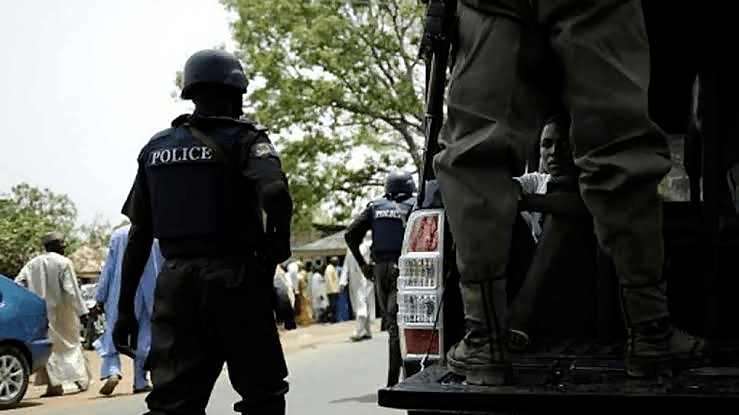The Nigeria Police Force used to have an apt jingle, “Armed robber no be spirit.” This is true, as confirmed recently by the Katsina state governor, Mallam Dikko Umaru Radda, who raised an alarm that most bandits tormenting the state are not outsiders but locals known within their communities. As the chief security officer of the state, he should know.
Radda further revealed a scary dimension to the unfortunate state of affairs when he gave figures to the effect that a staggering 90 per cent of the criminals involved in banditry were homegrown and lived within the communities they terrorised.
We assume that the governor of Katsina state is just realising this development that has been in the public domain for some time. In that case, we are persuaded to encourage him to act fast, as he has already started doing by setting up a local security initiative for young people from the affected areas.
But this newspaper recalls scenes where state governors sign memoranda of understanding (MoU) with known bandits declared wanted by security agencies. In those situations, the bandits are seen in photo ops with some state actors, displaying their AK-47 rifles slung on their shoulders.
We also recall a bizarre situation in which a notorious bandit on the Police wanted list had a chieftaincy title conferred on him publicly. Of course, Governor Radda is right that bandits are known by the communities they terrorise. What is intriguing is why those community leaders have not been questioned to explain how that is possible.
We recall that the immediate past governor of Niger state, Abubakar Sani-Bello, also complained, during his tenure, that terrorists had infiltrated his administration using high government officials as informants. This may sound surreal, but it proves the disturbing trend that crime and criminality have assumed over time in the country. The fight against bandits and their co-travellers has become so pretentious that Nigerians are beginning to imagine who is fooling whom. Insecurity is becoming, sadly, in our opinion, a thriving business that is threatening to bring down the polity.
The challenge is the vast sums, some of them extra-budgetary, allocated to security at all levels of government. With a burgeoning array of security consultants who want a piece of the action, it is not a surprise that insecurity will continue to be a festering sore.
Government agencies charged with managing the country’s insecurity aver that there is often an insider in a crime. For a kidnapping expedition to succeed, there must be someone close to the victim who gives details of his movement and other aspects of his daily routine that make him vulnerable.
Boko Haram seems invincible in parts of the North because the people there, either through coercion or deliberate collusion, make themselves willing tools or accomplices.
In such situations where people unwittingly have to harbour criminals, they become unwilling accessories to the crime. Part of the problem that creates this nexus between the people and the criminals is not far to seek. In most of those cases, criminals fill in the gaps created by the absence of governance, corruption, political and religious manipulations,
It is common knowledge that most local government functionaries hardly reside in the areas they are supposed to oversee. Even worse is the scenario where they indulge in sleaze and malfeasance, making the frittering away of resources meant for development commonplace.
Also, unemployment is part of the problem, as most of these criminals are from the youth segment of the population. Without a legitimate means to earn a decent living, they fall easily into the antics of the next bad guy who comes with a proposal guaranteed to put food on the table without considering the plan’s legitimacy.
As a newspaper, we have commented on this page on the activities of politically exposed persons who aid and abet criminality in communities. Often, these so-called bandits, kidnappers and whatnot are agents of politicians who were mobilised, equipped, used and abandoned. In their circumstances, the illicit knowledge they acquired while working for their political paymasters is handy as they strive to figure out their survival strategies.
For the avoidance of doubt, this unfortunate situation is not peculiar to Nigeria. In places where drug and warlords hold sway, they take over the functioning of government by providing those social amenities that ought to be the exclusive preserve of state actors. The tragedy is that, in those circumstances, officialdom seems helpless.
In the meantime, we commend Governor Radda and others like him for taking the bull by the horns and tackling the morass from its very foundation. The setting up of the local security initiative in the state with the youths as the arrowhead is a welcome development because it is viable as a source of employment for the youths, who in turn will see it as part of their duty to keep the machinery running smoothly.
In the final analysis, we are convinced that state police hold the key to a lasting solution to insecurity.





